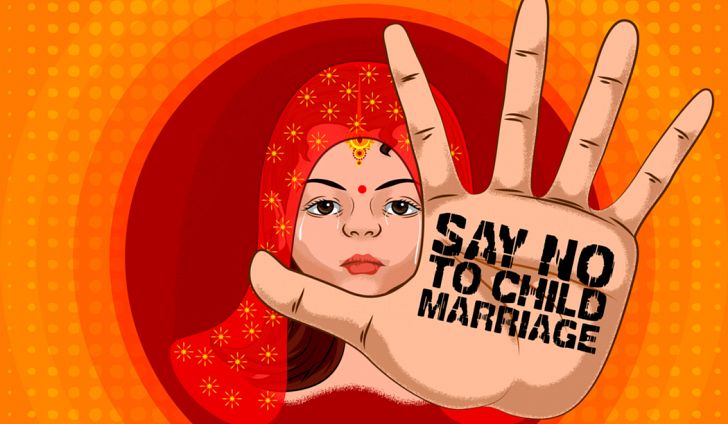Nigeria is ranked 11 among the 20 countries in the world with highest prevalence of child marriage, the United Nations Entity for Gender Equality and the Empowerment of Women (UN Women), said Wednesday.
Mr Edward Kallon, UN Resident Coordinator in Nigeria, said this at the ongoing UN Women Conference 2018 in Lagos.
The News Agency of Nigeria (NAN) reports that the four-day conference had the theme- Ending Child Marriage and Female Genital Mutilation in Africa: Dialogue with Traditional and Cultural Leaders.
Kallon highlighted the top 20 countries with highest prevalence of child marriage according to UNICEF report titled `The State of the World’s Children 2017.’
According to the report, Niger ranks highest with 76 per cent followed by Central African Republic with 68 per cent, Chad 67 per cent, Bangladesh 59 per cent, Burkina Faso 52 per cent, and Mali 52 per cent.
South Sudan has 52 per cent, Guinea 51 per cent, Mozambique 48 per cent, Somalia 45 per cent and Nigeria 43 per cent, are Malawi 42 per cent, Madagascar 41 per cent, Eritrea 41 per cent.
Other countries are: Ethiopia 40 per cent, Uganda 40 per cent, Nepal 40 per cent, Sierra Leone 39 per cent, Democratic Republic of Congo 37 per cent and Mauritania 37 per cent.
“Worldwide, more than 700 million women alive today were married as children, 17 per cent of them or 125 million live in Africa.
“If we do nothing to accelerate progress the number of child brides in Africa will double by 2050.
“Africa will take over South Asia to become the region with the largest number of children brides in the world,” he said.
He said child marriage had negative implications for the household, national and regional economic prosperity and development.
“It is important to note that the fight to end child marriage and female genital mutilation remain a key priority of the United Nations.
“While we have made progress over the years, our achievements have been relatively little.
“This is why we partnering with traditional and religious leaders to end the silence on child marriage and other harmful traditional practices in Africa,” Kallon said.
Hajiya Aisha Abubakar, Minister for Women Affairs and Social Development, said the plight of young girls who were confronted with several challenges from birth through childhood to adulthood due to cultural practices called for concern.
Abubakar who was represented by Hajiyah Jumai Mohammed said an estimated six million girls were married by age 15 and 36 million girls were married by age 18 nationwide.
She said child marriage was extremely prevalent in the North West and North East region with 76 per cent and 76 per cent respectively, while the South East had the lowest prevalence with 10 per cent.
Abubakar said the Federal Government launched a National Strategy to End Child Marriage in 2016, to reduce child marriage by 40 per cent by the year 2020 and end the practice entirely by 2030.
She urged traditional leaders to key into the national strategy as respected authorities and influencers in the communities.
“Religious and traditional leaders as custodians of cultural values, norms and ethics of the society, therefore, they are critical to winning the fight against harmful traditional practices,” she said.
Governor Akinwunmi Ambode of Lagos State, described child marriage and female genital mutilation as grave Human Rights violations and impediments to national development.
Ambode, who was represented by Dr Lola Akande, Lagos State Commissioner for Women Affairs and Poverty Alleviation, said the fight against the harmful cultural practices required collective efforts by all.
“Parents, religious and traditional leaders as well as all meaning Nigerian have role to play. As a government, we will continue to empower and protect the rights of women and girls,” Ambode said.

